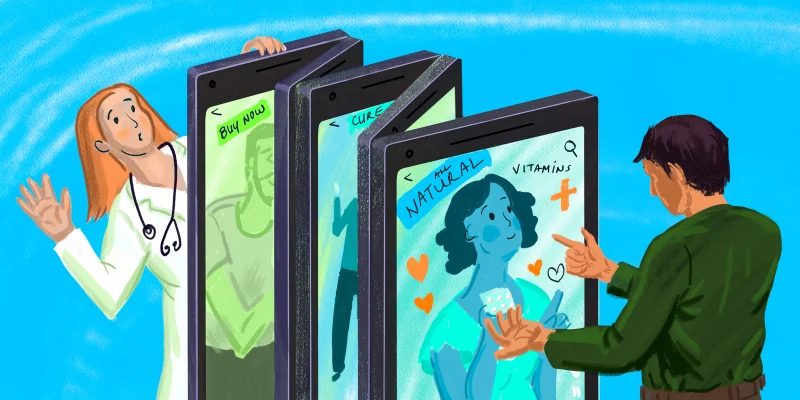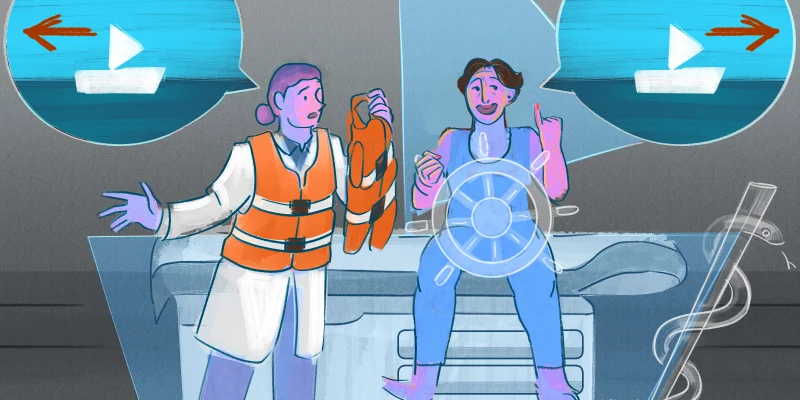For all my fellow residency applicants out there, I have some good news and I have some bad news.
Bad news first: Some of us won’t match into our ideal slots. In fact, some of us won’t match at all. I speak from personal experience.
Thanks to the specifics of my particular program, my Match Day was in December, months before the traditional Match Day for the vast majority of applicants. To be blunt, the news came as a very unpleasant shock. In a flash, you find yourself in a dreaded nightmare where it seems that every bit of self-doubt and impostor syndrome that you ever experienced was even closer to the truth than you feared. The typhoon appears seemingly out of nowhere and smashes you, and it can feel like you’re drowning. Was all that blood, sweat, and tears from the past four years all for nothing?
Now for the good news: No, it wasn’t all for nothing! Eventually the tides recede, and it turns out that life goes on after all. It may sound trite and cliché, but I promise that it really does get better. While it still is painfully tempting to lapse into episodes of gloom and self-pity, I’ve found that all of life can be divided into two spheres: what you can control, and what you can’t. Most of what happens in the world may be out of our hands, but focusing on what you can change will do wonders for your mental state and well-being.
For those of you who end up in the unfortunate circumstance of not matching, I encourage you to view this as a learning opportunity. Reach out to the various physicians and program directors that you felt the most kinship with for their thoughts. What aspects of your application could have been better? What other strengths could you highlight? What could you have done differently? Receiving personalized feedback from those physicians and directors can be extremely helpful and allow you to strengthen your subsequent applications appropriately. Plus, revising your resume now may be helpful down the road, when it’s time for the inevitable next round of applications, whether you’re applying for a fellowship or to be an attending.
For example, I learned that my application had weaknesses in both research and leadership, so now I’m working on some papers and getting involved in the community. My decision to work on these areas led to me teaching weekly ESL classes, and I’ve found, to my surprise, that I absolutely love it. It has been incredibly rewarding to work with such intelligent and highly motivated students. Who knows, maybe at some point in the distant future I’ll pursue academic medicine, something I had never seriously considered before. If I hadn’t had this opportunity to explore community work and brush up on leadership and education, I might not have discovered my interest in these areas. Not matching forces you to take a long, hard look at your own weaknesses, but it also gives you opportunities for self-reflection and self-improvement.
Winston Churchill once said, “If you’re going through hell, keep going.” While not matching is certainly an unpleasant experience, it isn’t quite as bad as all that, but the sentiment is still important. Growth is never easy, but it is always worth it.
So if you don’t match, remember that it’s not the end of the world. There’s a reason why clichés like, “When one door closes, another opens” and “Make lemonade out of lemons” resonate with so many people; life is unpredictable and you need to enjoy the ride. So listen to the song “Pick Yourself Up” on repeat and try to view this less as a punishment or failure, and more as an opportunity for growth. You may be surprised by what you find.
What lessons can medical students take away from not matching into residency? Share your thoughts in the comment section.
Matthew Turner is a current fourth-year medical student at the Medical University of South Carolina. He is about to begin a transitional year in Washington State.
Image by erhui1979 / GettyImages






